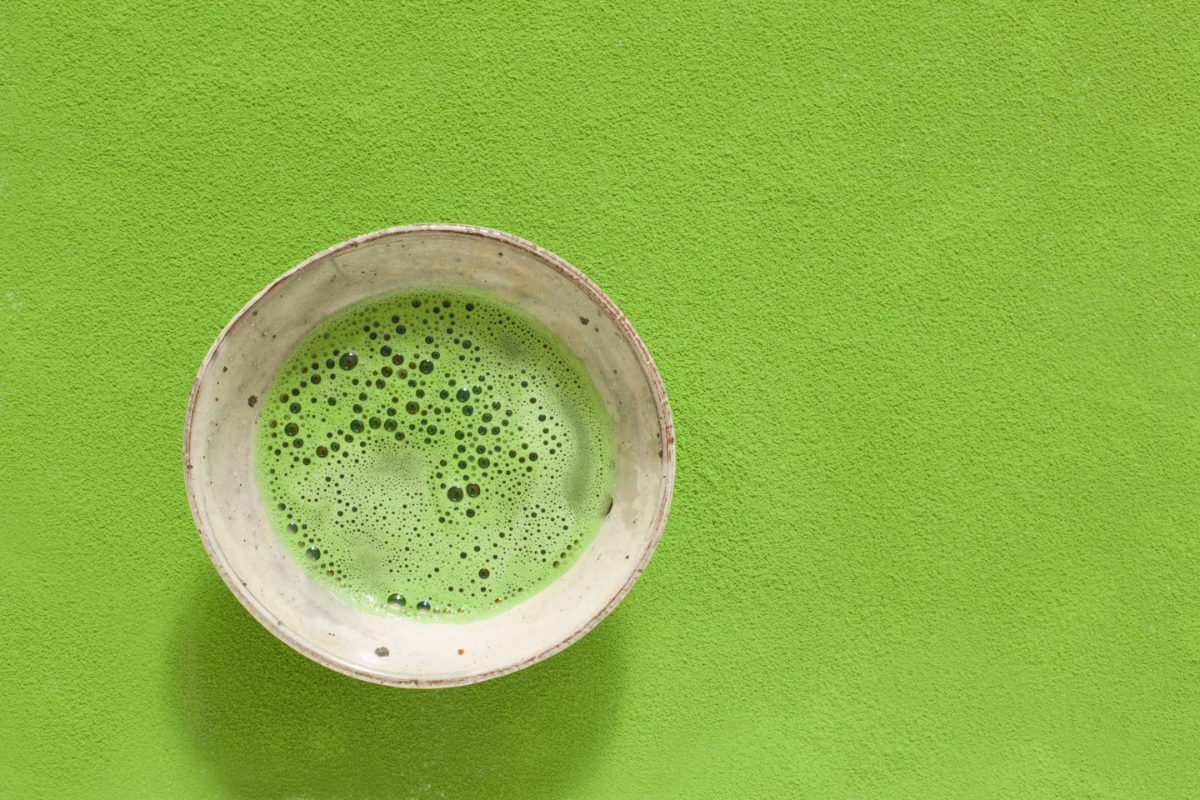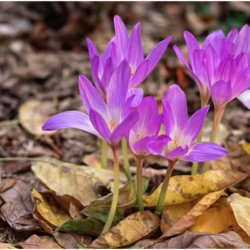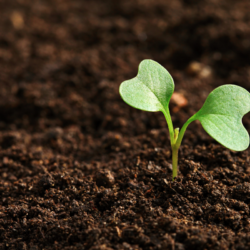Matcha, a premium green tea powder from Japan, has long been renowned for its health benefits. However, with its growing popularity, it’s essential to understand its proven benefits. In this article, we’ll explore the scientific benefits of matcha in detail, helping you to make the most of it for your well-being. Discover the secrets of this precious green powder and its impact on your health.
What is matcha?
Matcha is a special form of green tea from Japan, renowned for its exceptional qualities. It is distinguished by its method of cultivation, in which the leaves are covered to block out sunlight before harvesting, thereby increasing the production of chlorophyll and amino acids. This process gives matcha its bright green colour and unique, rich, umami flavour profile. After harvesting, the leaves are dried and ground into a fine powder, which is then used to make a traditional drink by whisking the powder with hot water. Unlike other teas, matcha involves consuming the whole leaf, offering a higher concentration of nutrients, antioxidants and caffeine.
The history and cultural significance of matcha in Japan are deeply rooted. Originally from China, matcha was introduced to Japan by Buddhist monks in the 12th century. It quickly gained popularity, particularly in monastic circles for its meditative properties. Over the centuries, matcha has become a central part of the Japanese tea ceremony, also known as ‘Chado‘ or ‘Sado‘. This ceremony is an artistic and spiritual ritual, emphasising presence and mindfulness. The preparation of matcha in this ceremony is considered an art form, symbolising peace, harmony and simplicity.
Is matcha rich in active compounds?
First of all, matcha is an exceptional source of antioxidants. Antioxidants are molecules that help protect cells against damage caused by free radicals. In fact, free radicals are unstable molecules that can damage healthy cells and contribute to premature ageing and various diseases. As a result, the antioxidants in matcha can help neutralise free radicals and prevent cell damage.
Matcha is also an important source of theine, a substance that acts like a form of caffeine. Theine can help improve alertness and concentration, making it an ideal choice for those looking to boost their energy and productivity. However, unlike caffeine, theine acts more slowly and steadily, which can help avoid the negative effects such as anxiety or irritability associated with caffeine.
Is matcha good for your health?
Matcha is also known for its anti-inflammatory properties. In fact, inflammation is a normal and necessary process to help fight infections and injuries, but chronic inflammation can be associated with various illnesses such as obesity, heart disease and diabetes. In short, the antioxidants and other compounds contained in matcha can help to reduce inflammation and prevent these diseases. (3)
What is the difference between green tea and matcha tea?
The main difference between green tea and matcha lies in their preparation and composition. Green tea is brewed from dried leaves, whereas matcha is a fine powder obtained by grinding whole green tea leaves. This means that when we consume matcha, we ingest the whole leaf, benefiting from a higher concentration of certain nutrients and antioxidants. What’s more, matcha has a distinct taste and texture, often richer and creamier than traditional green tea.
Does this beverage have an effect on cancer cells?
Matcha is also known for its anti-cancer properties. Some studies have shown that the compounds contained in matcha can help prevent the growth of cancer cells and reduce the risk of cancer. It should be noted, however, that these studies have only been carried out on animal models and that further research is needed to find out whether the results apply to humans (1)
What are the benefits of matcha for the skin?
Matcha can offer a number of benefits for the skin (2) (4), such as :
- Antioxidants: The antioxidants found in matcha can help protect the skin from free radical damage, which can help improve the appearance of the skin by keeping it youthful and luminous. A real bonus for the skin barrier!
- Moisturising: Matcha can help hydrate the skin, keeping it supple and hydrated.
- Reduced inflammation: The anti-inflammatory properties of matcha can help to reduce redness and skin irritation. Interesting in cases of rosacea for example!
- UV protection: Some studies have shown that matcha can help protect the skin from damage caused by UV rays.
- Improved skin texture: Indeed, matcha can help improve skin texture by smoothing and tightening it. A bit like certain acids, such as glycolic acid, azelaic acid or vitamin C?
It’s important to note that to get the best results for your skin, it’s best to consume matcha regularly (you’ll find it in tea form in our online Organic Pharmacy ) and to combine it with a good skincare routine. In fact, if you’re not sure how to go about building your ideal routine, let our Natural Beauty section be your guide, or make your own skin diagnosis from the comfort of your own home tomorrow, thanks to our artificial intelligence system ABBI !
Precautions for use
Although matcha is widely considered to be beneficial to health, it is important to note that excessive consumption can present certain risks. The high caffeine content in matcha can cause side effects such as sleep disorders, anxiety, heart palpitations and irritability in some people, particularly those sensitive to caffeine. What’s more, because of its high concentration of compounds, over-consumption of matcha could potentially affect iron absorption and have a negative impact on certain medical conditions. It is therefore advisable to consume matcha in moderation.
Matcha tea quiz
- What is the main difference between matcha and traditional green tea? a. Colour b. Texture c. Method of preparation d. Taste
- How many cups of matcha are recommended per day? a. 1-2 b. 3-4 c. 5-6 d. No limit
- What is the main ingredient in matcha that helps improve concentration? a. Theine b. Antioxidants c. Chlorophyll d. No limit Antioxidants c. Chlorophyll d. Polyphenols
- Can matcha be used in recipes other than drinks? a. Yes b. No
- What are the side effects of consuming too much matcha? a. Drowsiness b. Excess energy c. Trouble sleeping d. Decreased appetite
Answers
- c. Method of preparation
- a. 1-2
- a. Theine
- a. Yes
- c. Sleep disorders
Don’t forget to share your answers and thoughts on matcha in the comments below!
Read more:
- https://www.ncbi.nlm.nih.gov/pmc/articles/PMC6128439/
- https://www.ncbi.nlm.nih.gov/pmc/articles/PMC3390139/
- https://www.ncbi.nlm.nih.gov/pmc/articles/PMC7796401/
- https://www.hsph.harvard.edu/news/hsph-in-the-news/matcha-health-benefits/





